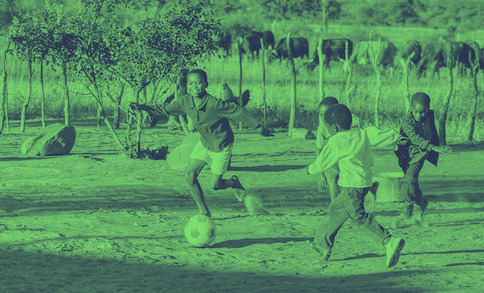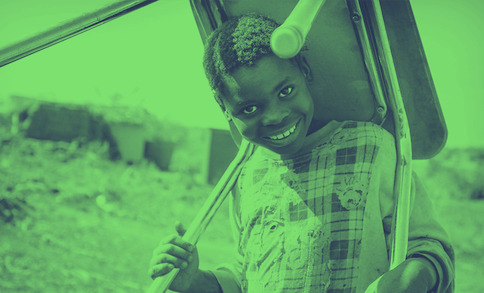

Field report
May 2018: Read Dario Meili’s Field Report from Malawi.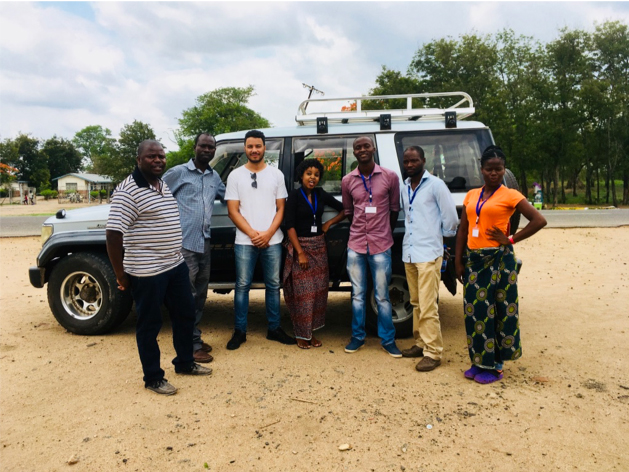
As an econ student currently writing my master thesis at the Center for Child Well-being & Development (CCWD), I had the unique chance to spend three fascinating months in Malawi working as a research assistant. Apart from working with UNICEF Malawi’s Planning, Monitoring & Evaluation Section in Lilongwe, the country’s capital, I also had the task to coordinate communication between CCWD and the UNICEF sections we are collaborating with. On top, I executed few pilot studies for two of the projects that we are running in Malawi.
One of the two studies is about measuring the prevalence of harmful traditional practices like early child marriage and initiation rituals containing sexual practices. While the former issue was already the subject of research projects (e.g. Corno and Voena, 2015; Corno, Hildebrandt and Voena, 2016), the latter only recently came into the media’s spotlight and to the attention of social scientists. To us, initiation rituals containing sexual practices are as disturbing as inexplicable: it is reported that many girls and boys in rural villages undergo some kind of initiation ritual between the age of 8-15 in order to be accepted by the elders and peers as adults. These rituals are widely spread throughout the country, although, in most cases they do not entail what is referred to as sexual cleansing. Yet, especially in some areas in Malawi’s Southern Region, girls and boys are encouraged or forced to engage in sexual intercourse as a part of the initiation either among peers, or worse, with sex workers called ‘hyenas’.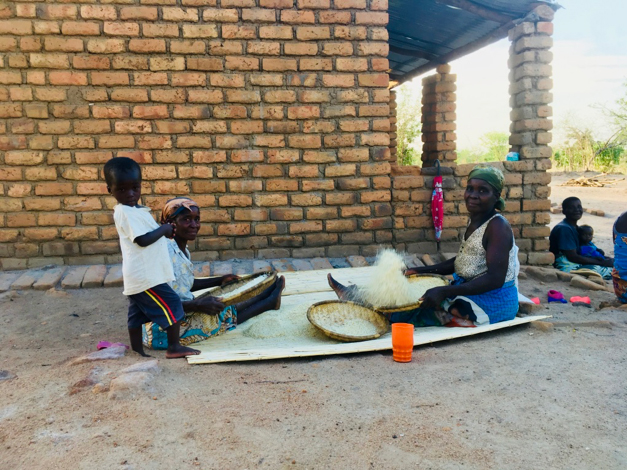
An important element in understanding the social norms that sustain these practices are the attitudes that people have towards harmful traditional practices. Unfortunately, standard research techniques are not fit for capturing people’s true opinions as they may be biased by social desirability. In our research, a compelling way to avoid this problem is by conducting a list experiment. Basically, the researcher presents a list of statements to two groups of respondents who get to say how many of the statements they agree with. The researcher does not know which particular statements the respondents agree with, only how many. In our case, one group answered a list of three innocuous statements, while another group additionally had to take position on a statement that we were actually interested in (e.g. “Girls can decide themselves whether or not to be sexually initiated”). The difference in the average number of agreed statements between the two groups reflects the prevalence of that attitude in our sample.
Studying at Zurich University, I understood that conducting an experiment in the lab with university students as participants is already fairly complicated. Thus, imagine doing the same in remote communities in southern Malawi, where some of the people have not spent a single day of their life in school. That is why I was tasked to run a pilot in three different villages so we could test whether the experiment works as intended. Soon I realized that I was going to face various challenges. After a few days of administrative preparations and training for the interviewers, we ventured into the field with a 4x4, a stack of questionnaires, a few boxes of soap as giveaways, and a lot of bottled water. It soon became obvious: November in Malawi is a misanthropic place. The sun burns down at 39 degrees Celsius, insects are everywhere, and to top things off: hungry hippos are looking for a midnight snack.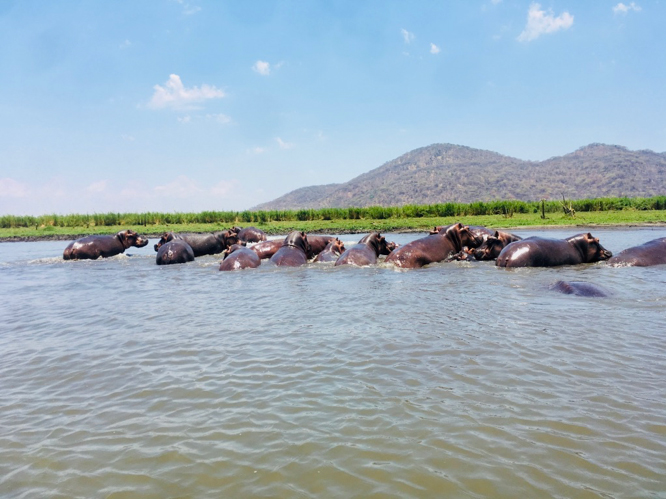
All the three villages included in the study were located in around Liwonde National Park on the banks of the Shire River and close to the Mozambique border. While driving into the village on day one the first problem already dawned on me. There were children all over the place (like pretty much everywhere in Malawi), but almost no parent to be seen, which we desperately need for conducting the interviews. At first it seemed odd to me. Weren’t the villages bustling with people when we conducted focus group discussions three months earlier? For this situation, Mathews, our field supervisor and a native Malawian had an answer ready: November marks the beginning of the rainy season, the villagers are all out sowing their fields (note to myself: always check the agricultural cycle). Luckily, by 10 o’clock people that had been working since five in the morning started returning and my team and I were able to approach them for the interviews.
After the interviewers had sprawled out and finished their first few dialogues, I started joining them for sit-ins. The next problem emerged soon enough, but this time it was about me. After listening to a young mother being interviewed for only a few minutes, dozens of kids began flocking around us whispering to each other and pointing their fingers at me. It is not every day that a Mzungu (Chichewa for European) shows up on their front porch. So, I decided to leave the mother and the interviewer alone and let the children show me where they play soccer. After an hour or so, they realized that I was not that interesting after all, which allowed me to listen to some more interviews.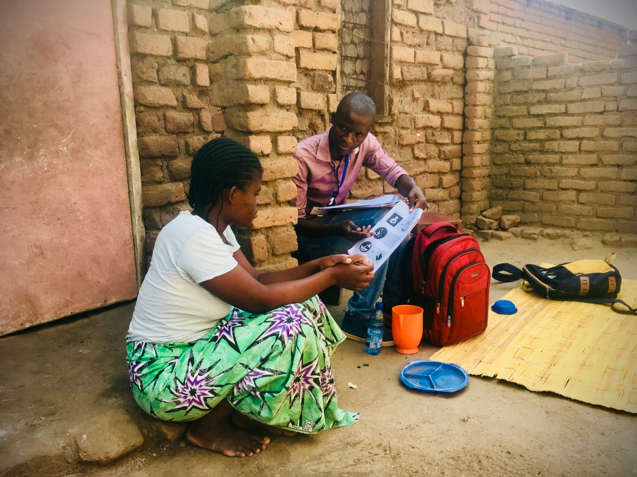
After the first day I had already learned many things. First and foremost, that the problems never pop up where and when you expect them to. For instance, one respondent was reluctant to participate because she was worried that the experiment was related to something like Satanism. To indicate agreement with the statements we used matchsticks that apparently have some sort of symbolic character. Amid the rumors of bloodsuckers travelling through the South of the country, Satanism is not something you want yourself being linked to.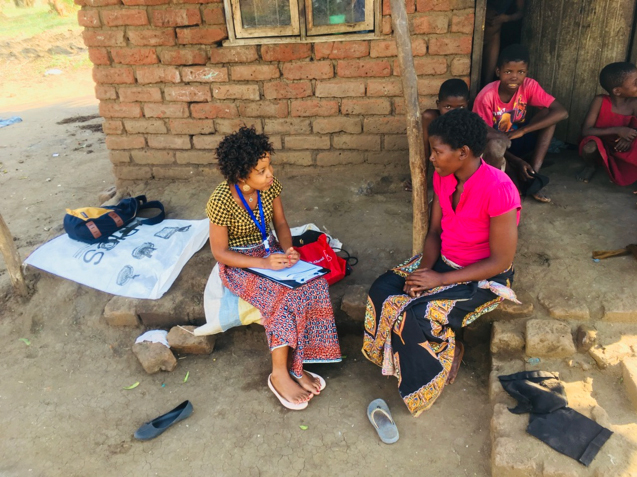
A second important lesson for me was the need to acknowledge the status and power of the traditional leaders. Each day, first thing in the morning Mathews and I would go to the chief’s house and have an extended chat with him about what we were doing, who we were asking, and what we would do with this information. With one exception, the chiefs were usually sympathetic towards us, but on the third day we got to experience the power of the traditional authority. We literally found ourselves being chased out of a village from a chief that was clearly looking for some duba-duba (the Malawian expression for that extra pocket money) which we refused to give him – we cannot budget for it.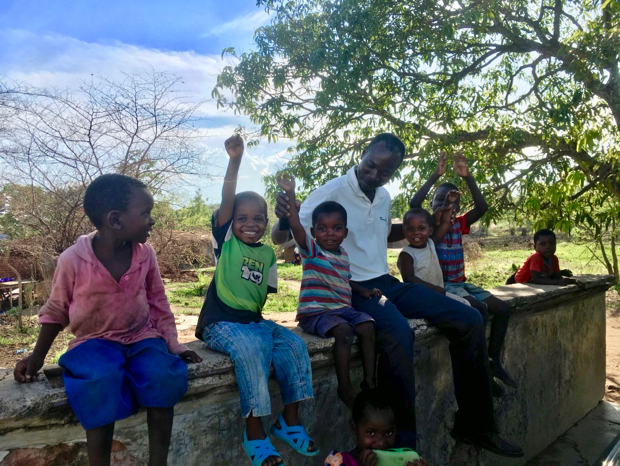
All in all, it was a week full of fascinating experiences, many issues to be solved and a lot of lessons learned. I realized that small things like keeping time in check can already prove to be seemingly insuperable challenges in the Malawian countryside. And what about the experiment? Well, it worked! Preliminary analysis shows that in fact there is a huge gap between attitudes towards harmful traditional practices when people are asked directly or in secrecy, and this is only a pilot. Stay tuned for more results to come.

